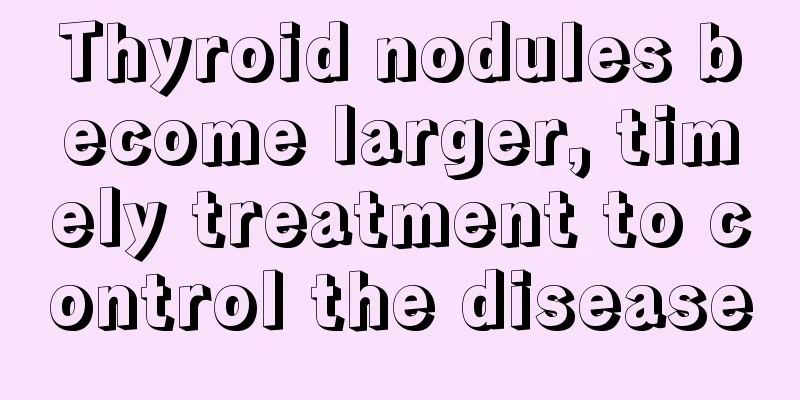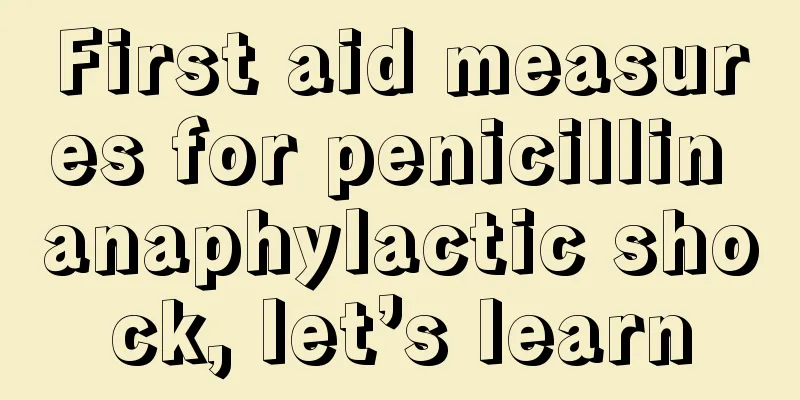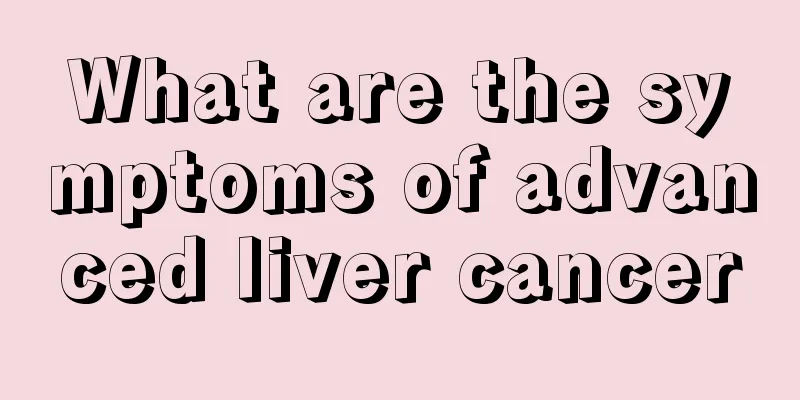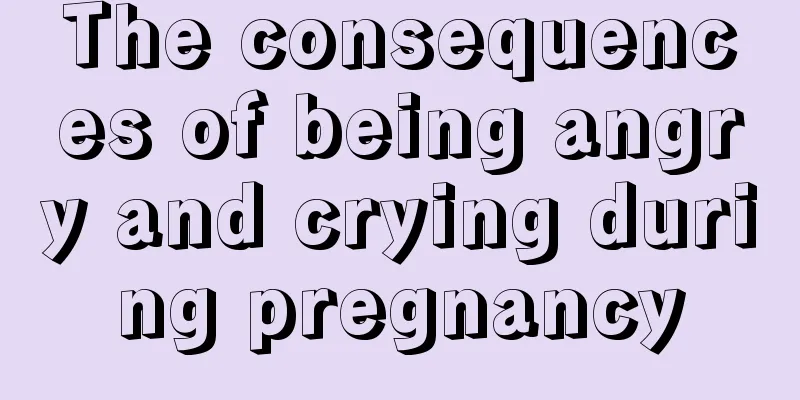Thyroid nodules become larger, timely treatment to control the disease

|
When thyroid nodules become larger, a series of complications will occur, such as compression of the trachea and difficulty breathing. If they compress the esophagus, symptoms of swallowing discomfort will occur. Timely treatment is required. Generally, the treatment of thyroid nodules takes some time. 1. Thyroid hormone suppression therapy Short-term treatment is ineffective and should be continued for at least half a year. Premenopausal women and men can use higher doses (to suppress TSH to below 0.1mU/L) for suppression treatment for more than one year. If the nodule shrinks, the dosage of thyroxine can be reduced and taken long-term to maintain TSH at the lower normal limit. If the nodule enlarges, treatment will be stopped and surgery or re-puncture evaluation can be performed directly; if the nodule does not change, treatment will also be stopped and only follow-up observation will be performed. Postmenopausal women should pay attention to the adverse effects of thyroid hormone on bone metabolism. A short-term follow-up (6 to 12 months) should be conducted first. If the nodule does not change or shrinks, follow-up alone is sufficient and thyroid hormone suppression therapy is not necessary. If the nodule enlarges after follow-up, suppression therapy should be given again. Generally, the initial dose should be small enough to suppress TSH to a level below normal but measurable (0.1 to 0.5 mU/L). After one year of treatment, the medication was discontinued for observation. For those whose nodules enlarge after stopping the medication, thyroid hormone treatment can be resumed to suppress TSH to the lower limit of normal, and the medication can be taken for a long time. If the nodules remain unchanged or shrink, only regular follow-up is required. If nodules enlarge during suppressive therapy, direct surgery or re-puncture evaluation is required. 2. Sclerotherapy For diagnosis of benign nodules. In particular, this method can be used to treat autonomous functional thyroid nodules or adenomas, parathyroid adenomas, etc. Under ultrasound guidance, 1 to 4 ml of anhydrous ethanol is injected into the center of the nodule. The injection can be repeated until the nodule disappears. 3. Radiation therapy Autonomous functional/hyperfunctional thyroid nodules or adenomas can be treated because of their ability to concentrate iodine. |
<<: How to treat congenital scoliosis, choose the method according to the situation
>>: Why is there pain in the knee? There are three reasons.
Recommend
What are the symptoms of gastrointestinal cold?
Gastrointestinal cold is actually a cold caused b...
What is the reason for many wrinkles on the neck
Many people think of wrinkles as facial wrinkles,...
Can I drink soy milk if I have high uric acid? The truth is this
Uric acid is a product of purine metabolism. If t...
What to do if you feel dizzy due to brain hypoxia
There are many cases of rhinitis in life. Patient...
How to tell if a cold is viral
Staying up late, sleeping late, bad eating habits...
Is it possible to have sex right after the menstrual period?
Every woman knows that you cannot have sex during...
Differential diagnosis of early esophageal cancer
In the differential diagnosis of early esophageal...
Dietary considerations for chemotherapy of endometrial cancer
Endometrial cancer is a very common disease in ou...
Is the survival rate of prostate cancer bone metastasis high? Is prostate cancer bone metastasis in the late stage?
We all know that prostate cancer is a serious mal...
The external medical effects of sesame oil
Sesame oil is a must-have condiment in our kitche...
How to treat obstructive pulmonary disease
Lung disease has always been one of the diseases ...
What is protein interaction?
Protein is an important concept in life, because ...
It hurts when I press on both sides of my neck
If your neck hurts when you press on both sides, ...
Will washing your face with white vinegar make it whiter?
Washing your face is very important for skin cond...
How to treat fear and anxiety disorder
Everyone in life always has something they are af...









